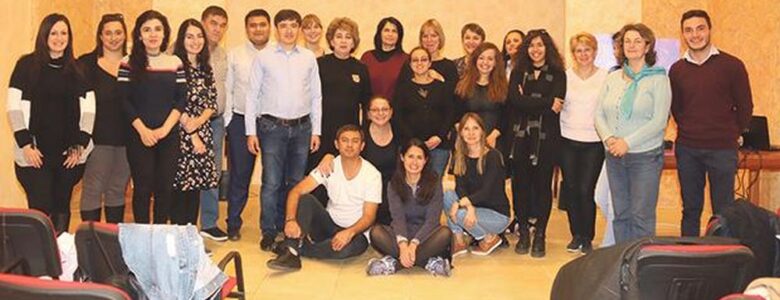The OASI Foundation has been operating int the field of addiction since 1991. We have noticed several changes in drug use scene and related trends, for which we have responded in our prevention strategies and treatment modalities to cater for such needs.
The National focal point (NFP) in its National Report on the Drug Situation in Malta 2019 shows clearly that 40% of those entering treatment for the first time do so because of their cocaine abuse and its related problems. These national figures are also reflected in our clientele, where 44% are requesting treatment for cocaine abuse, against the 25% for alcohol abuse, 16% for heroin and 9% for cannabis amongst others.
This does reflect the false perception in our society – the belief that cocaine use is not harmful. Cocaine, like alcohol and cannabis, are considered by the layman as recreational drugs. These figures clearly show that cocaine problematic use is on the increase and persons and families are becoming victims of such false belief.
The mental and financial harm caused by the use of these substances is increasingly devastating, and the severity of cases is increasing.
Our beneficiaries do report that substance use during these festive activities increases. This is also confirmed by the increased number of arrests and seizures of these substances during this time of year.
The use of the substances and even more so, the mix of these substances, cause an alteration in perception and awareness, which is directly reflected in decision making. We see the drastic negative effect of these decisions on daily bases in the persons and families we work with.
We do urge the various members of our society to re-embrace the belief that enjoyment is not being high on drugs and that drugs do not lead to enjoyment in the long run. We do encourage people to think before making use of any kind of drug and that there is professional help for persons and their families who are being affected by substance abuse. We are noticing parts of this society who are finding enjoyment and pleasures in healthy behaviors such as sports and culture.
The OASI Foundation offers professional therapy and treatment to persons and their families with addiction difficulties both on community based and residential bases, as well as offers prevention awareness and consultation to community groups, community leaders and employers.
The OASI Foundation takes this opportunity to wish everyone a clean and sober Christmas and New Year.

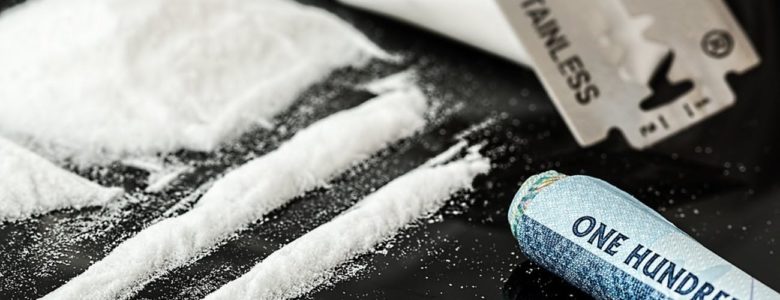
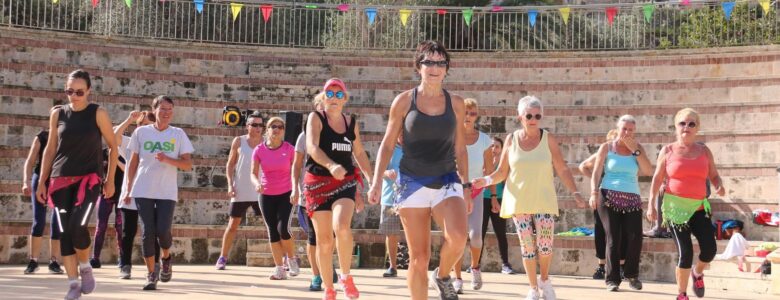
 Zumba and Aerobics sessions were held at Villa Rundle Gardens, Victoria, in aid of the OASI Foundation
Zumba and Aerobics sessions were held at Villa Rundle Gardens, Victoria, in aid of the OASI Foundation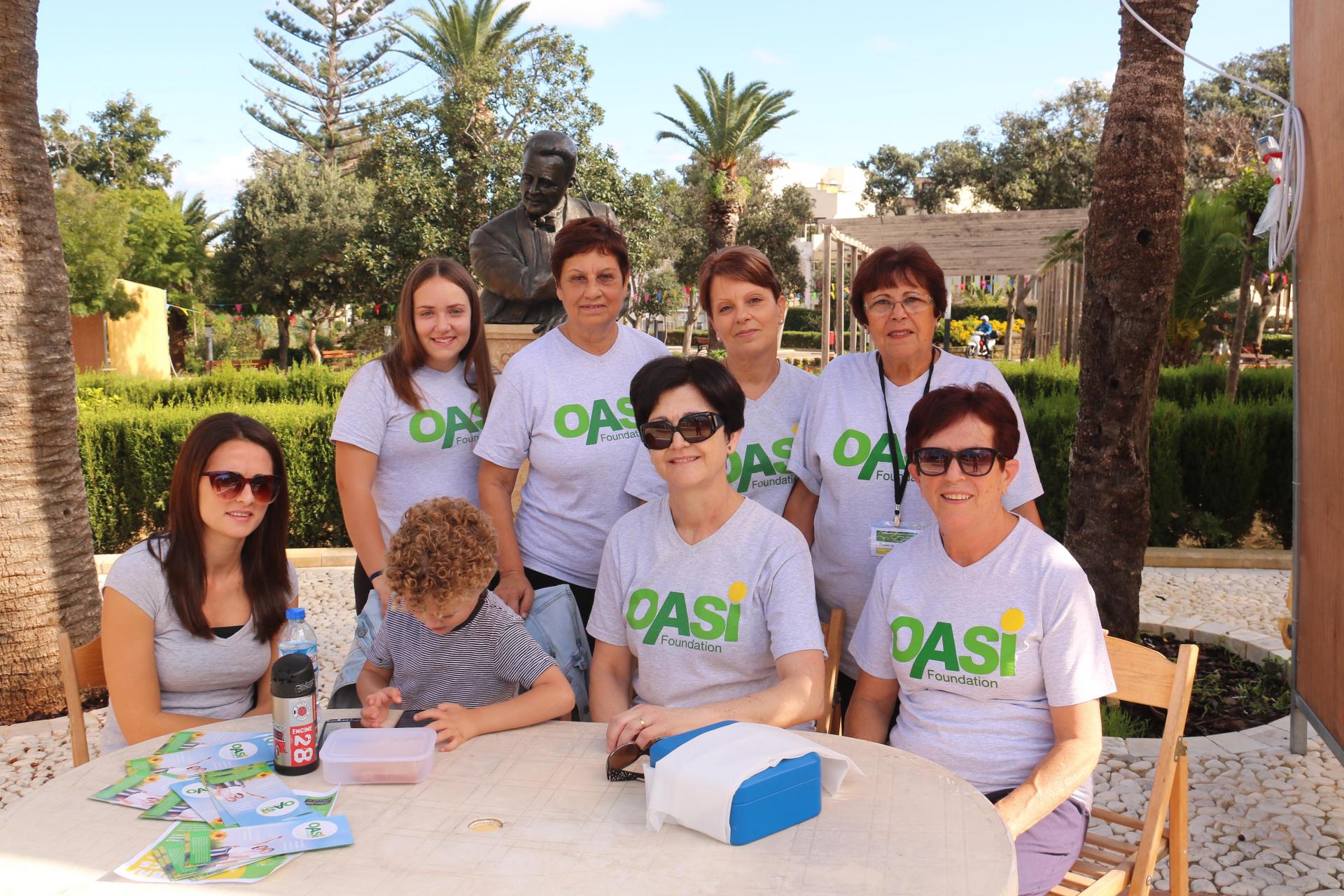
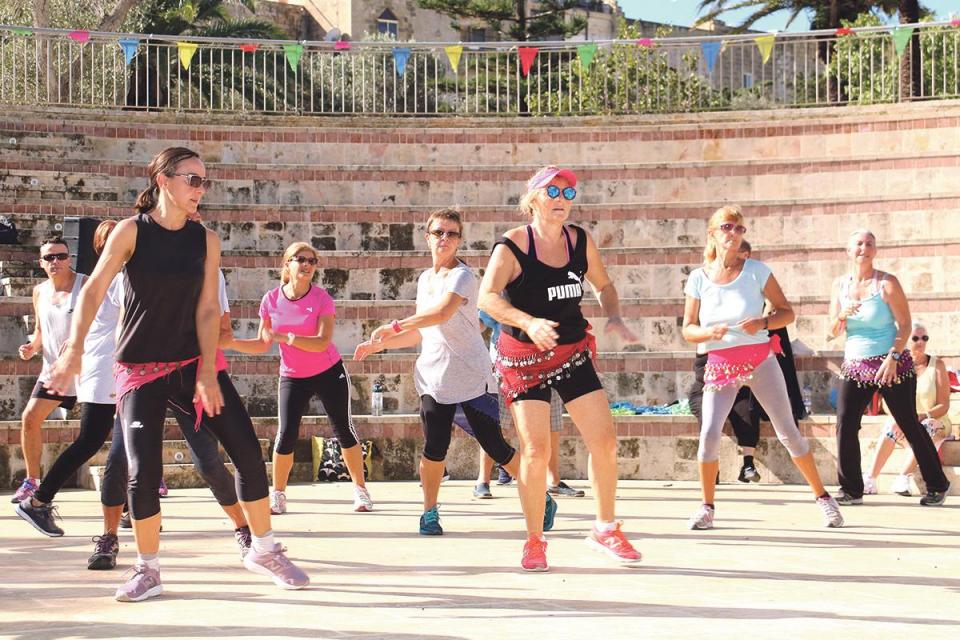
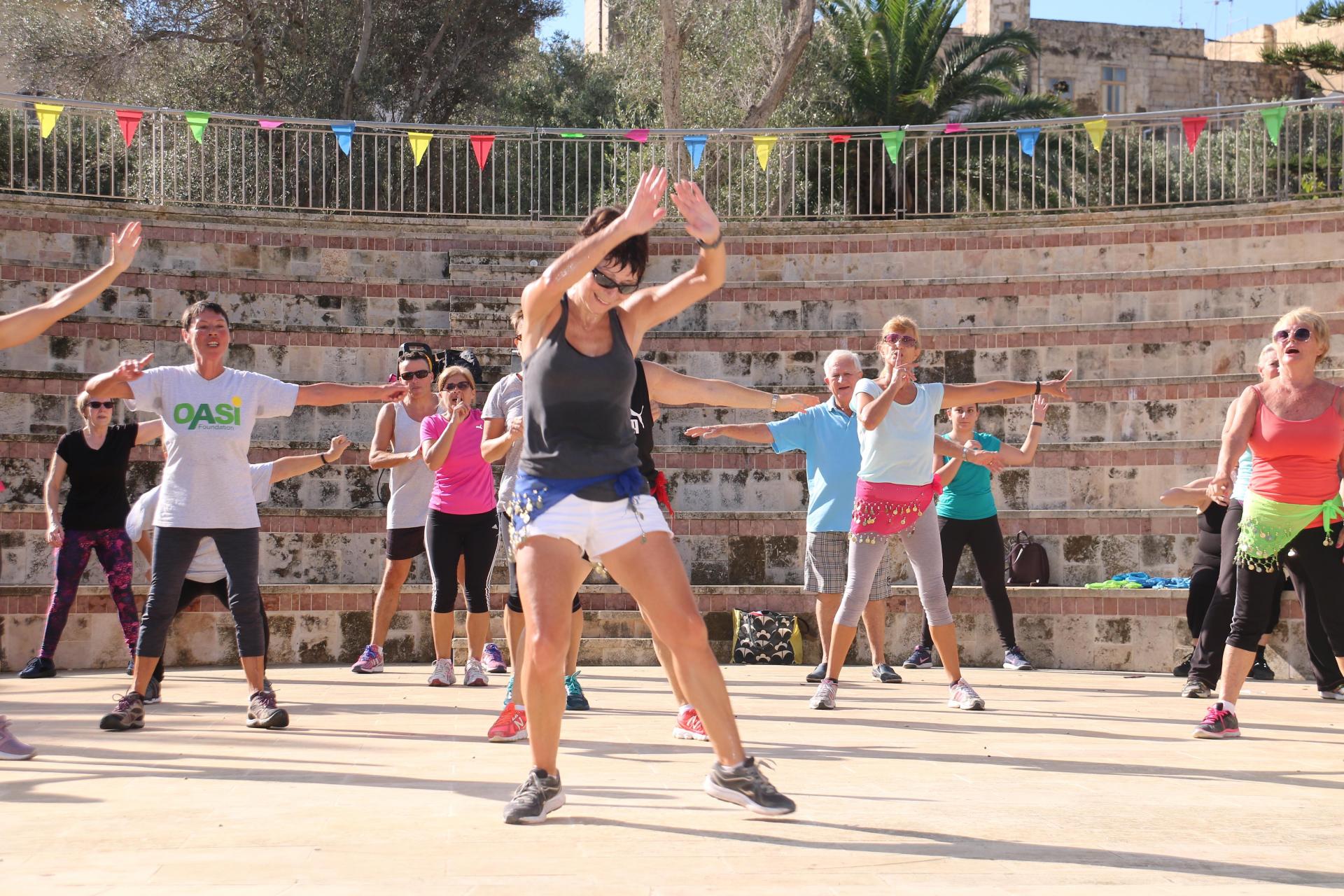
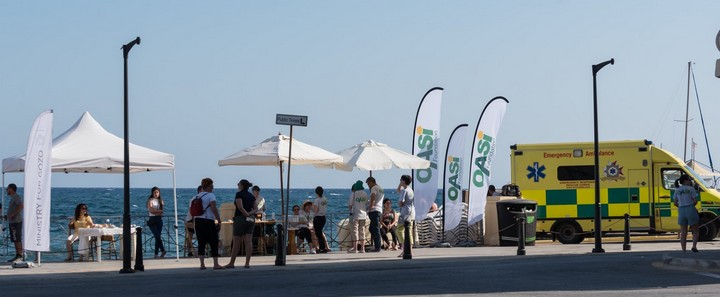
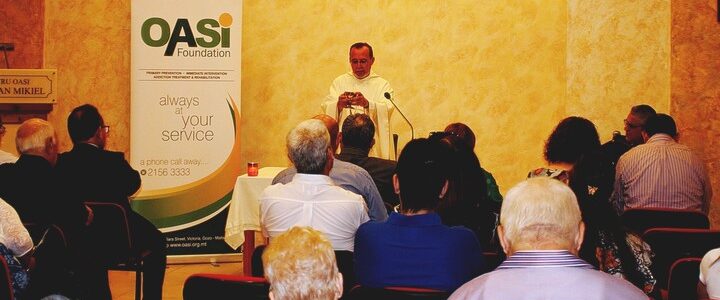
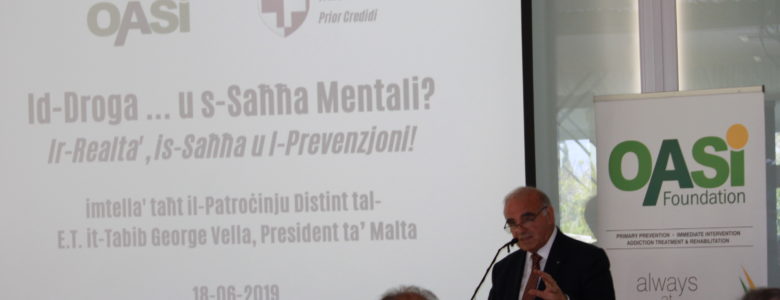
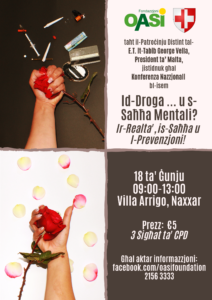 Today, 18th June, the OASI Foundation together with the Naxxar Local Council organized a National Conference under the Distinct Patronage of H.E. Dr. George Vella, President of Malta, with the title Drugs...and Mental Health? Reality, Health and Prevention. The conference was held at Villa Arrigo and was moderated by Mr. Clifford Galea.
Today, 18th June, the OASI Foundation together with the Naxxar Local Council organized a National Conference under the Distinct Patronage of H.E. Dr. George Vella, President of Malta, with the title Drugs...and Mental Health? Reality, Health and Prevention. The conference was held at Villa Arrigo and was moderated by Mr. Clifford Galea.
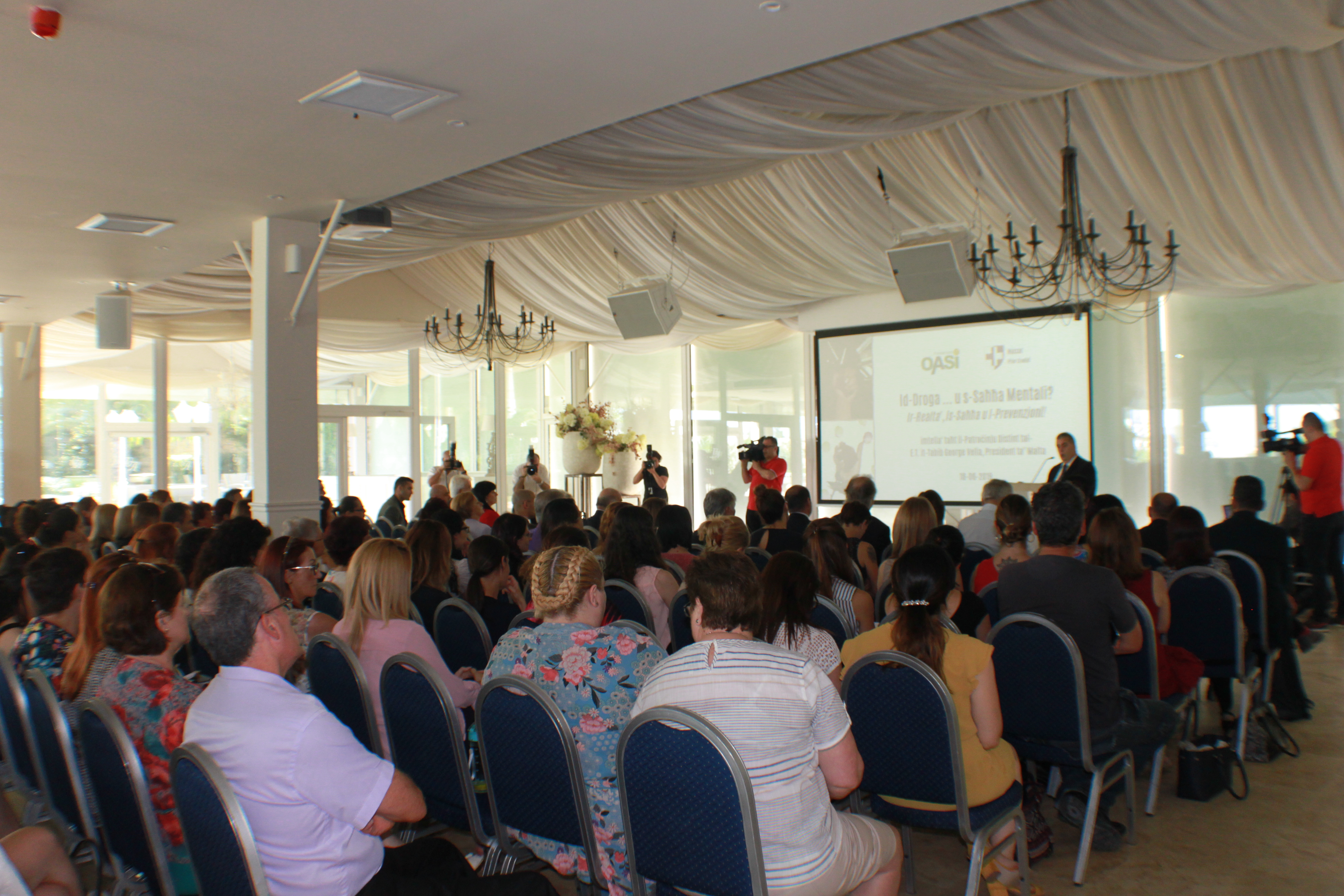

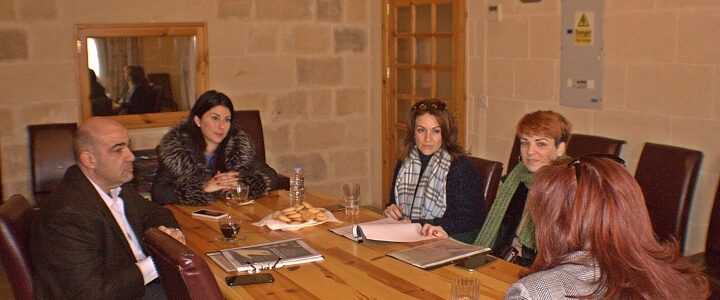
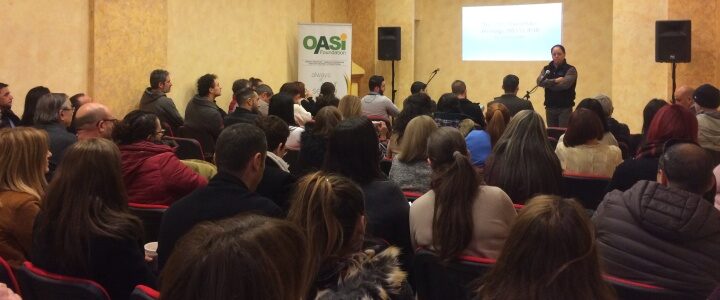
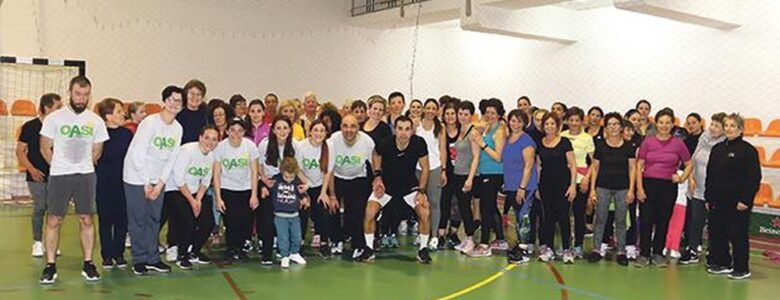
 The Bern Hersey’s Fitness Club organised a special class at the Sacred Heart Seminary Fitness Centre in aid of the OASI Foundation. More than 80 people attended the one-hour session, during which they were given fitness intelligence guidelines by Leo. The aim of the activity is in line with the OASI Foundation’s preventive approach: sport and physical activity contribute to feeling good and prevent substance use and abuse.
The Bern Hersey’s Fitness Club organised a special class at the Sacred Heart Seminary Fitness Centre in aid of the OASI Foundation. More than 80 people attended the one-hour session, during which they were given fitness intelligence guidelines by Leo. The aim of the activity is in line with the OASI Foundation’s preventive approach: sport and physical activity contribute to feeling good and prevent substance use and abuse.